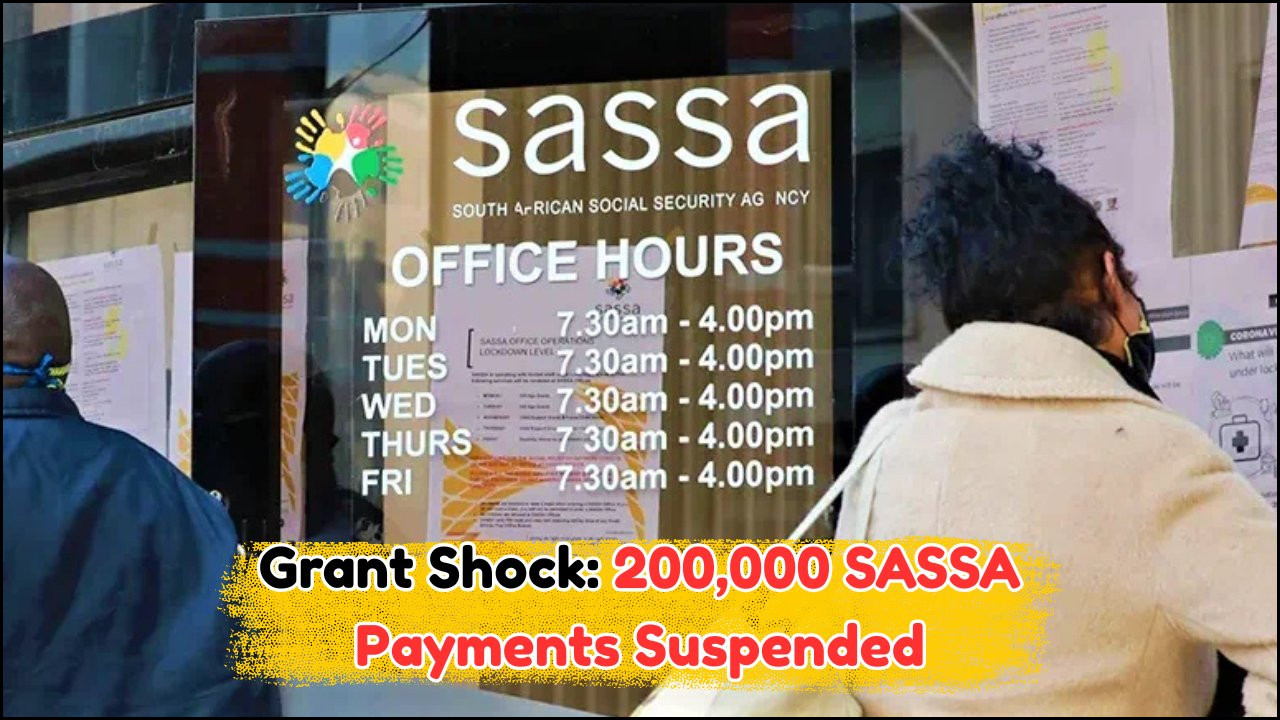SASSA coverage expansion for informal workers: The South African Social Security Agency (SASSA) is poised to implement a transformative expansion of its coverage, now set to include the nation’s informal workers. This groundbreaking initiative seeks to provide a safety net for millions of South Africans who have long been excluded from formal social security benefits. Informal workers, who form a substantial part of the workforce, have historically faced financial insecurity due to the absence of structured social protection. With this expansion, SASSA aims to bridge this gap, offering much-needed support to a demographic that plays a crucial role in the economy but often lacks the stability of formal employment. By including informal workers, SASSA is not only addressing a significant social need but also promoting economic resilience and inclusivity across the country.
Understanding the Impact of Including Informal Workers in SASSA’s Coverage
The decision to expand SASSA’s coverage to include informal workers marks a new era in social welfare in South Africa. This initiative is expected to uplift the lives of millions who have been operating without a safety net. Informal workers, such as street vendors, domestic workers, and seasonal laborers, often earn inconsistent incomes and lack access to benefits like healthcare and retirement savings. By extending its coverage, SASSA is not only providing financial assistance but also recognizing the vital contributions these workers make to the economy.
- This inclusion will enhance financial stability for informal workers.
- It will potentially increase consumer spending as workers have more financial security.
- The initiative could reduce poverty levels and economic disparity.
- It supports the government’s broader goals of economic inclusivity and social equality.
- Informal workers will have access to structured financial assistance during emergencies.
- Greater recognition and formalization of the informal sector’s economic role.
Challenges and Opportunities in Expanding SASSA Coverage
While the expansion of SASSA coverage to informal workers is a significant step forward, it does come with its own set of challenges and opportunities. One of the primary challenges is accurately identifying and registering informal workers, who often do not have formal employment records. This requires innovative approaches to ensure that the right individuals benefit from the program. Additionally, funding the expanded coverage without overburdening the existing social security budget is another hurdle that needs strategic planning.
| Challenge | Opportunity | Solution | Outcome | Impact |
|---|---|---|---|---|
| Identification of Workers | Technology Integration | Digital Registration | Accurate Beneficiary List | Increased Accessibility |
| Budget Constraints | Funding Allocation | Public-Private Partnerships | Sustainable Financing | Expanded Coverage |
| Awareness | Community Outreach | Information Campaigns | Informed Beneficiaries | Higher Participation |
| Infrastructure | System Upgrades | Technology Enhancements | Efficient Service Delivery | Improved User Experience |
| Policy Implementation | Stakeholder Engagement | Collaborative Efforts | Effective Rollout | Policy Success |
Government’s Role in Facilitating SASSA’s Expansion for Informal Workers
The South African government plays a pivotal role in facilitating the expansion of SASSA’s coverage to informal workers. This initiative aligns with national goals of reducing poverty and promoting equality. The government is expected to provide the necessary legislative support and resources to ensure the successful implementation of this program. By collaborating with various stakeholders, including non-governmental organizations and private sector entities, the government can create a comprehensive framework that supports the unique needs of informal workers.
Benefits of Government Involvement
- Facilitates efficient policy implementation.
- Ensures adequate funding and resource allocation.
- Promotes collaboration with key stakeholders.
Potential Economic Benefits of Including Informal Workers in SASSA
Incorporating informal workers into SASSA’s safety net is not only a social imperative but also an economic opportunity. By stabilizing the financial conditions of informal workers, the expansion is expected to stimulate economic growth. These workers will have more disposable income, which can lead to increased consumer spending, driving demand for goods and services. Additionally, by reducing poverty and inequality, the initiative can contribute to a more stable and prosperous economy.
- Boost in consumer spending due to increased financial security.
- Reduction in poverty and economic inequality.
- Promotion of a more inclusive economic environment.
Challenges in Implementing SASSA’s Expansion for Informal Workers
Implementing the SASSA expansion to include informal workers is not without its challenges. Ensuring that the program reaches all eligible informal workers requires a robust infrastructure and extensive outreach efforts. Additionally, maintaining the program’s sustainability while managing financial constraints is crucial for long-term success. Addressing these challenges will require innovative solutions and collaboration across various sectors.
Key Considerations in Implementation
| Consideration | Strategy | Outcome |
|---|---|---|
| Outreach | Community Partnerships | Increased Enrollment |
| Technology | Digital Platforms | Efficient Processing |
| Funding | Diverse Funding Sources | Sustainable Program |
| Training | Capacity Building | Skilled Workforce |
| Monitoring | Regular Audits | Enhanced Accountability |
Long-term Implications of SASSA’s Expansion for Informal Workers
The long-term implications of including informal workers in SASSA’s coverage are profound. This initiative has the potential to transform the socio-economic landscape of South Africa by providing a safety net for millions who were previously unprotected. Over time, this could lead to a more equitable society with reduced poverty levels and enhanced economic stability. As informal workers gain financial security, their increased participation in the economy could drive growth and innovation.
 SASSA Announces Crucial Updates: July–August Grant Payment Dates and Eligibility Criteria Revealed!
SASSA Announces Crucial Updates: July–August Grant Payment Dates and Eligibility Criteria Revealed!
Expected Long-term Benefits
- Reduction in national poverty rates.
- Greater economic stability and resilience.
- Increased participation of informal workers in the formal economy.
- Enhanced social equality and cohesion.
FAQ Section: SASSA Coverage Expansion for Informal Workers
What is the SASSA coverage expansion?
The expansion aims to include informal workers in the social security benefits provided by SASSA.
Who qualifies as an informal worker?
Informal workers include individuals like street vendors, domestic workers, and seasonal laborers who lack formal employment contracts.
How will the expansion benefit informal workers?
It provides financial assistance and recognizes their contribution to the economy, offering a safety net in times of need.
What challenges does SASSA face with this expansion?
Challenges include identifying and registering informal workers and ensuring sustainable funding for the program.
How can informal workers register for SASSA benefits?
Registration details will be provided through community outreach and digital platforms to ensure accessibility for all eligible workers.







